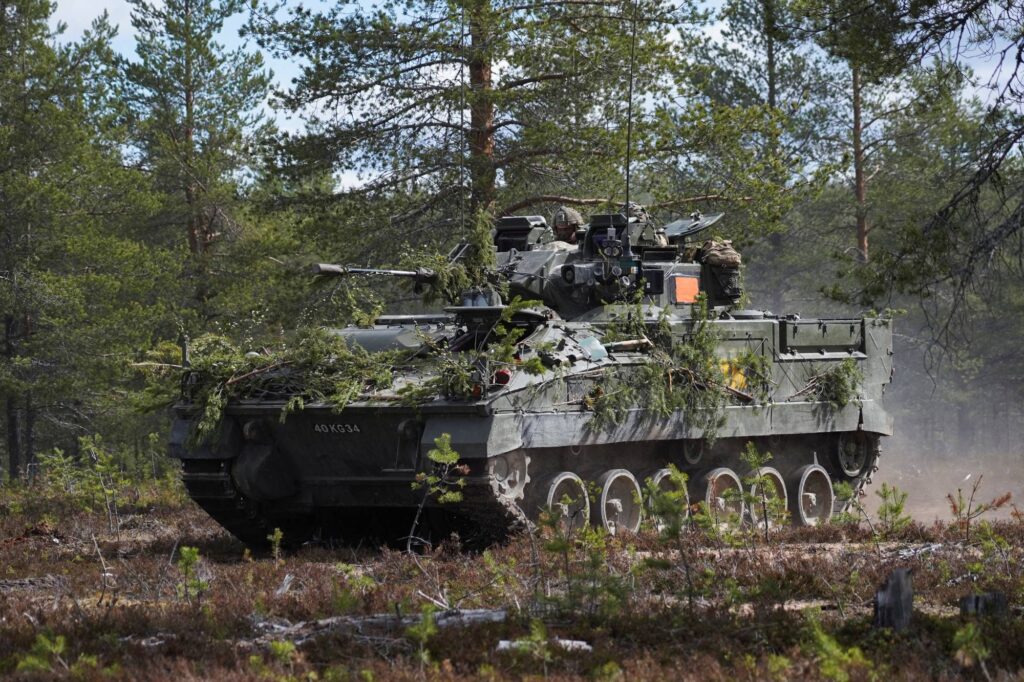How to protect Europe against Russia

Introduction
Russia’s aggressive actions in recent years have posed a direct and acute military threat to Europe, especially to states within its perceived sphere of interest. In order to prevent a conflict, the West must be prepared to engage with Russia in a manner that deters aggression. This article explores the need for military support to Ukraine, the importance of strong political leadership, urgent procurement of military equipment, the significance of mass and scale alongside innovation, the ongoing challenge of hybrid warfare, the role of the European Union (EU), and the necessity of regional cooperation within Northern Europe.
Military Support for Ukraine
It is crucial to provide Ukraine with rapid and substantial military support to not only endure, but ultimately succeed against Russian aggression. This support should include vital components such as air power, long-range missiles, and a continuous supply of ammunition. By equipping Ukraine with the necessary resources, the West can contribute to bolstering its defense capabilities and deterring further Russian aggression.
Strong Political Leadership and Vision
To effectively address the Russian threat, the West must demonstrate strong political leadership guided by a comprehensive vision for Europe as a whole. This vision should prioritize the values of freedom and peace, and serve as a unifying force against external aggression. Through cohesive and decisive leadership, Europe can create the necessary deterrence that will deter Russia from pursuing aggressive actions.
Urgent Increase in Military Procurement and Production
In order to enhance security and readiness, the West must urgently increase procurement and production of military equipment, particularly in terms of ammunition and missiles. The pace of production should match wartime standards, ensuring a continuous supply of crucial resources. By reinforcing the military capabilities of Europe's armed forces, the West sends a strong message to Russia, emphasizing its commitment to defend European territories.
Balancing Mass, Innovation, and Recruitment
While innovation and new technologies are essential, it is crucial to recognize that mass and scale still matter in military operations. Therefore, the West must address recruitment strategies, including the potential reintroduction of conscription, to ensure the availability of sufficient manpower. Training and exercise programs should also be reviewed to emphasize readiness and adaptability to new threats, presenting a formidable defense against Russian aggression.
Countering Hybrid Warfare
Russia has consistently employed hybrid warfare tactics against the West for over a decade, leveraging strategies such as subwater infrastructure sabotage, disinformation campaigns, orchestrated migration, cyberattacks, and electronic jamming. In tackling these challenges, the EU plays a vital role, as does the cooperation between the EU and NATO. By coordinating efforts and sharing intelligence, the West can effectively identify and respond to these hybrid threats.
Northern Europe as a First Responder
To enhance European security, Northern Europe must develop the capacity to act as a First Responder against potential Russian aggression. Regional initiatives should prioritize the ability to respond promptly on a tactical level, ensuring a rapid and coordinated defense against any military incursions. This approach not only enhances regional security but also lays the foundation for a united and cohesive European defense strategy.
Integrating Germany and Poland into Baltic Sea Security
Germany and Poland, crucial players in the Baltic Sea region, should be further integrated into its security framework. By strengthening their involvement in Baltic security initiatives, Europe can enhance its deterrence capabilities and better respond to potential Russian threats. Increased cooperation and joint exercises between these nations will showcase a unified front, deterring any provocative actions.
Conclusion
Addressing the Russian threat requires a multifaceted approach that encompasses various aspects of military, political, and regional cooperation. By providing rapid military support to Ukraine, fostering strong political leadership, increasing military procurement, and acknowledging the importance of both mass and innovation, Europe's defense capabilities can be strengthened. Countering hybrid warfare and enhancing EU-NATO cooperation are crucial steps to address non-conventional threats. Furthermore, regional initiatives in Northern Europe and increased integration of Germany and Poland into Baltic Sea security will reinforce Europe's readiness to respond to potential Russian aggression. Only through a comprehensive and coordinated approach can Europe effectively safeguard its territories, ensuring a Europe that remains whole, free, and at peace.